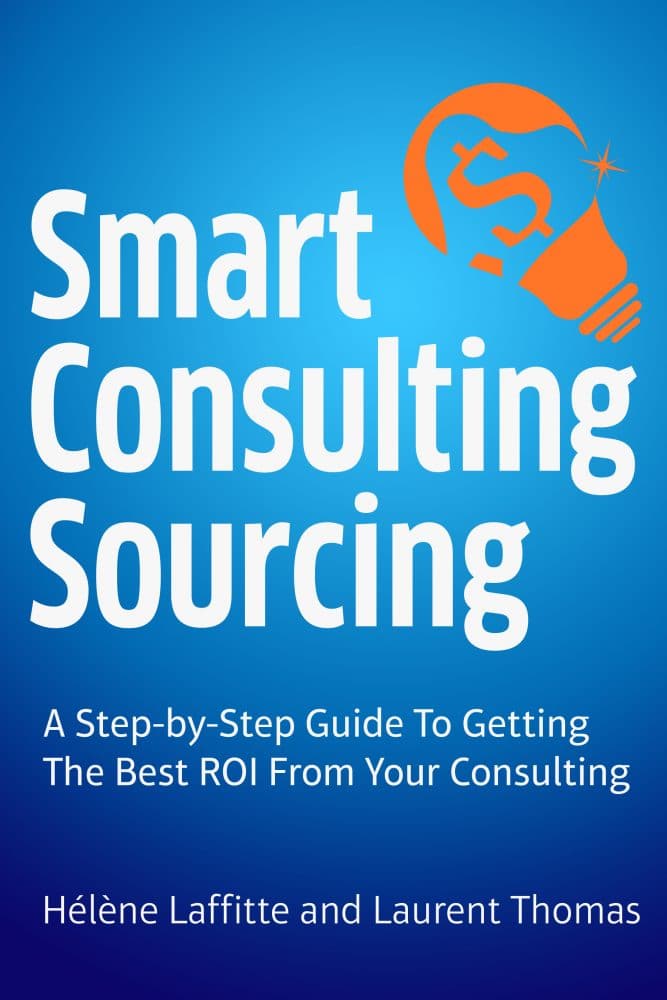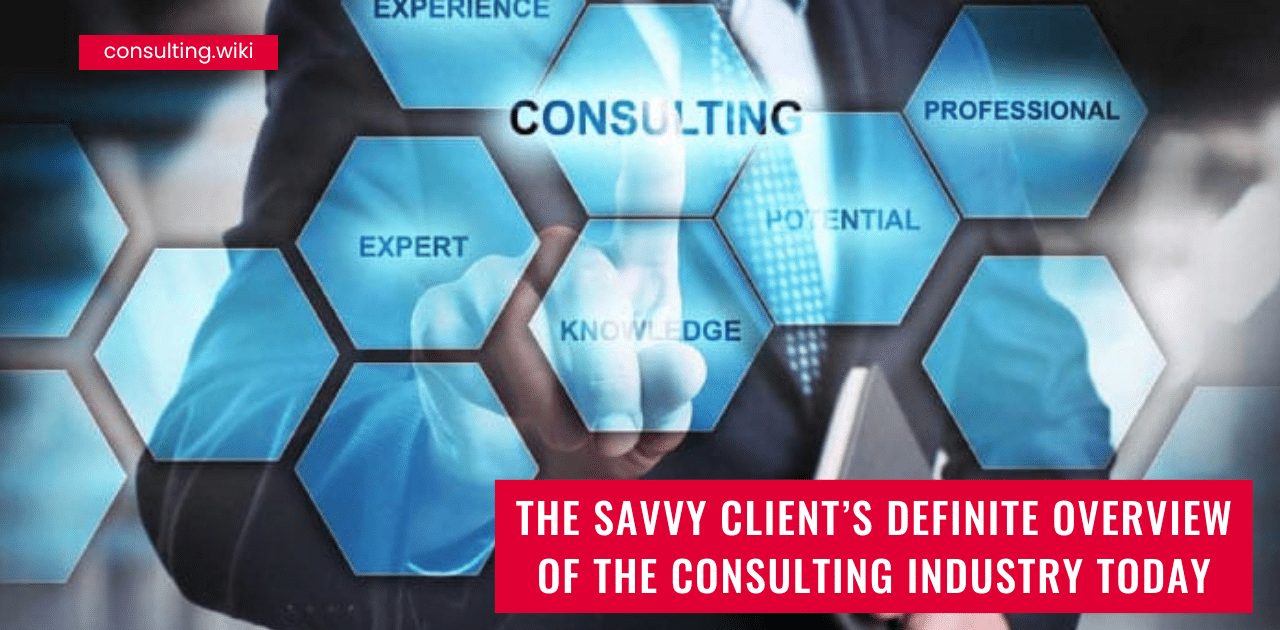
How the top 5 spending industries are leveraging consulting?
An executive can’t know it all, even in their field of expertise. Accepting external help can be handy once in a while. And consultants have made their trade to accumulate experience and develop expertise. Leveraging consulting on the right projects can boost the execution of your strategy.
How are the top 5 spending industries leveraging consulting?
Actually, the spend on consulting is closely related to the magnitude of the changes and disruption happening in an industry or a function. It shows that, indeed, executives turn to consultants to support them in solving some strategic issues.
“My basic strategy is to stick to my core business and to my area of expertise” – Henry Sy
But you will need to understand what consultants can bring you and how that would fit in your strategic agenda.
Today, the top 5 spending industries in consulting are Financial Services, Public Sector, Health & Life Sciences, Manufacturing, and Energy & Environment. So let’s have a closer look at what is happening in these industries.
READ ALSO
Launching a large consulting project can be daunting. Often the project will impact several functions and locations.
1. Financial Services –
The Financial Services Industry is traditionally one of the largest users of Management Consulting.
From Banking to Insurance or Wealth Management, the industry faces unprecedented challenges from both traditional and tech players.
New technology is enabling new business models and rendering old platforms obsolete. Besides, most companies are shifting from a product to a customer-centric model.
Being customer-centric is not just about listening to how your customers want to interact with you but about understanding what they value beyond your products and services, so your company can identify the whole brand-customer relationship and further develop in meaningful ways.
The big winners in Fintech disrupting the industry are those who operate from an end-user perspective rather than a product-perspective.
And here is a brief outline of the types of consulting projects to help you achieve them:
Sample projects you might like to consider:
- Designing a new incentive scheme for the commercial branch to drive customer and value-oriented behaviors in Retail Banking
- Building a roadmap to modernize the business model from implementing self-service to sharing capabilities across businesses and digitizing processes to spur efficiency in Capital Markets
- Benchmarking the IT performance and investments priorities amongst Asia-based Insurers
- Reviewing the Risk Function Operating Model to increase agility in Banking
2. Public Sector –
The Public Sector, namely government and administrations, is a very large segment for the consulting industry. The types of consulting projects can vary greatly depending on the level of development of the countries. Governments in all economies ask for help to drive national investment strategies or fiscal policies favoring economic development.
They also need support to analyze and anticipate complex situations like the Brexit, for example (according to Sky News, Britain spent £75M with the largest consulting firms for Brexit preparation)
Many developing economies need support to manage large infrastructure projects. Western economies leverage consultants to drive the simplification and productivity initiatives in public services. In recent years, the pressure is mounting on Governments the reduce the cost of consulting engagements. Even the IMF recently recommended for developing economies to reduce the utilization of Blue Chip consultancies.
Sample projects you might like to consider:
- Providing government with actionable advice to support the government in accelerating economic development
- Redesigning the end to end logistics process for a ministry of defense
- Developing policies and strategies to support Fintech and financial inclusiveness for Asian Governments
Support public bodies (government, commissions, associations, … ) with expert analysis in case of potential Antitrust situations.
3. Health & Life Sciences-
Health and Life Sciences, in its largest definition, represents a good portion of consulting industry demand. This significant share is indeed no surprise if we take a better look at it. Pharmaceuticals, Medical Technology, Healthcare payers, and delivery systems are experiencing invigorating changes and face several challenges as well.
Healthcare costs are exponentially growing in many countries. In the US, they are close to 20% of GDP. Healthcare Payers are under pressure to reduce costs while providers need to increase their efficiency. Pharmaceutical companies have to navigate vast R&D portfolios as their shareholders expect significant returns.
Besides, they have to deal with a complex ecosystem that includes a challenging tryptic user (patient), prescriber (physician), and a third party (payer).
Sample projects you might like to consider:
- Developing strategies to accelerate the shift from Volume to Value in Healthcare
- Creating an M&A Pipeline to refresh and dynamize innovation in Pharmaceuticals
- Building actuarial models to optimize growth vs. profitability for Healthcare Payors
- Transforming a national healthcare system to ensure better coverage of citizens.
4. Manufacturing –
The manufacturing sector also makes a significant share of consulting investments. Manufacturing must be noted, is made of several distinct industries, rarely mentioned as such. Our definition of manufacturing includes Automotive, Aerospace, Consumer packaged goods, Electronics, and Process industries. All these industries are facing growing headwinds, competitivity challenges, and an aging workforce. They are also challenged to embrace new technologies that can completely disrupt their value chains.
Besides, as the national economies become more global, we also observe regional customization and personalization of products and services. This phenomenon leads to an acceleration of innovation cycles and a growing complexity to manage. Last but not least, the wage gap between Western and Eastern economies has reduced with more possibilities for automation at an affordable cost.
Most companies are rethinking their global footprint and supply chain to adapt to tomorrow’s challenges.
Sample projects you might like to consider:
- Scanning the Manufacturing Start-up ecosystem to identify the right partners to reduce maintenance costs
- Implementing a new procurement framework and systems to operate seamlessly with strategic suppliers
- Embarking all manufacturing plants in a transformation mixing lean and digital for a motorbike company
- Leveraging Concurrent Engineering and Spiral Development to reduce costs and shorten development times with late customization in Aerospace.
5. Energy & Environment –
The energy and environment sector is closely linked to the public interest. Oil and gas, energy, utilities, renewable energy are at the center of intense dialogue between the public and public interest groups and private companies operating in this space.
Companies in Energy and Utilities face increasing customer demand, high capital investment, increased competition, and more stringent regulations. In contrast, companies in Oil and Gas continue to cope with the new “normal” like lower prices, higher volatility, and shorter cycles.
Most companies focus their efforts on maximizing their investments’ short-term returns, improving resource productivity, and lowering total operating costs.
An interesting new trend is the growing utilization of data analytics to support operations and leverage the massive amount of data available.
Sample projects you might like to consider:
- Leveraging IoT to increase network reliability thanks to predictive maintenance
- Mapping the value pools post-crisis in Unconventional Oil & Gas
- Redesigning commodity trading systems to speed up decision making while managing risks
- Using big data analytical techniques to maximize returns in Energy Retail
Of course, this is just a glimpse of how to leverage consulting to increase your competitive edge and accelerate your transformation. The trick is to cherry-pick the projects that make sense and build your own consulting strategy.
Consulting sourcing tips

How to negotiate framework agreements for consulting to your advantage?
How to negotiate framework agreements for consulting to your advantage?

Make-or-buy for consulting services 101
Make-or-buy for consulting services 101

How to Hone to Perfection Your Consultant Selection with Our Top 5 List of Attributes
You are moving forward with the project and close to making a final selection of your Consulting provider. Based on the proposal assessment described in one of our previous articles, you should now have a good sense of what the Consultant can do for you, on paper.
Previous Weeks’ issues

Holiday Season Reflections: Top Themes in Consulting 2024 | This Week in Consulting
In this edition of this week in consulting, we embrace the holiday season by reflecting on 2024’s key trends like generative AI, sustainability, and social impact.

The Changing Tide of International Trade | This Week in Consulting
In this edition of This Week in Consulting, we explore how regions contribute to global trade, the challenges they face, and the opportunities to adapt amid shifting geopolitics and policies.

Digital Transformation Decoded: Challenges, Insights, and Opportunities | This Week in Consulting
In this edition of This Week in Consulting, we delve deep into the challenges and opportunities of digital transformation across industries, offering insights to strategize, adapt, and lead.
Choose the best next step for you
Buy the Book

Talk to us
Hélène Laffitte is the CEO of Consulting Quest, a Global Performance-Driven Consulting Platform and author of “Smart Consulting Sourcing”, a step by step guide to getting the best ROI from your consulting. With a blend of experience in Procurement and Consulting, Hélène is passionate about helping Companies create more value through Consulting.





